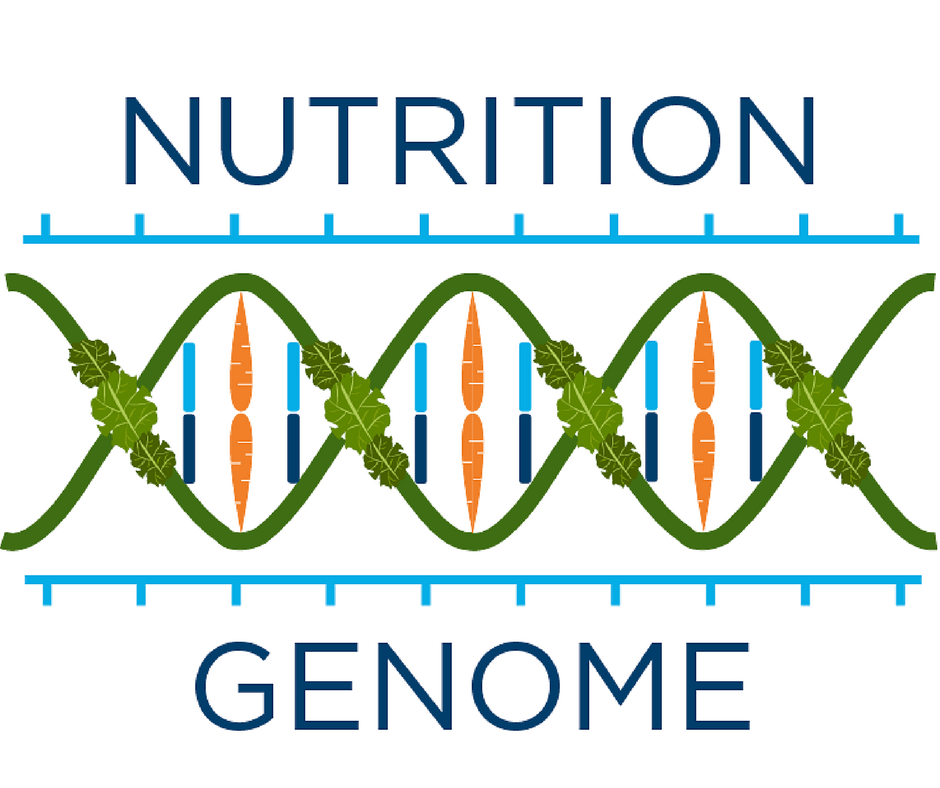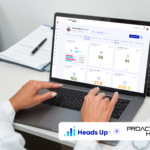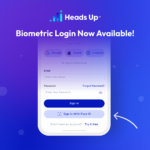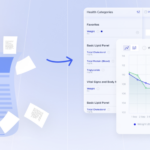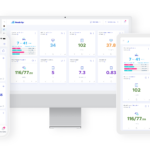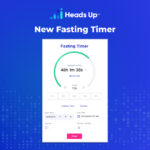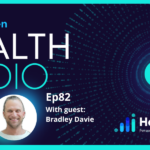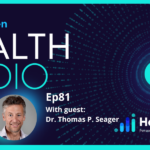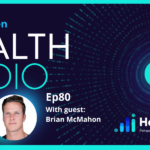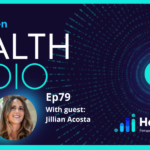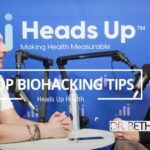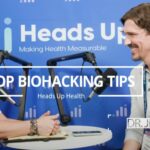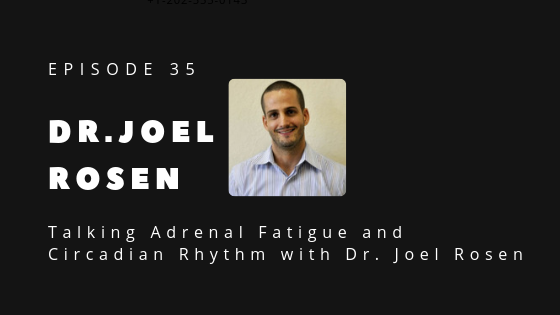
by Dave Korsunsky | Apr 14, 2019 | Podcast
Podcast: Play in new window | Download
Subscribe: Apple Podcasts | Spotify | Amazon Music | | More
After realizing he was suffering from adrenal fatigue and finding a serious lack of practical, understandable, and legitimate information out there, Dr. Joel Rosen found his way to recovery and decided to help others who were suffering the same fate. In today’s show, he shares how a dysregulated circadian rhythm can contribute to so many of the symptoms most everyone is suffering from today from fatigue to brain fog, insomnia, impatience, stress, and more, with the root cause being adrenal fatigue.
Taking direction on an ailment from someone who has been there, especially with something like adrenal fatigue can be so supportive. Considering that mainstream medicine doesn’t even recognize it as a legitimate diagnosis, makes it harder to find practitioners who can support you in this little known, but very common energy problem known as adrenal fatigue.
Dr. Joel Rosen runs a private practice in Florida focused around adrenal fatigue recovery, and is known not only as a functional medicine and health expert, but he’s also a data tracker as well. He knows the importance of tracking the data to see what is working, and using that data to course correct when things are ‘off’.
You can find Dr. Joel Rosen on Instagram, YouTube, his Podcast The Truth About Adrenal Fatigue, and his website.
Join Dave Korsunsky, Founder of Heads Up Health as he sits down with Dr. Joel Rosen and talks all things adrenal fatigue related in today’s episode.
Listen in iTunes!
This podcast is brought to you by Heads Up Health, a web app designed to help you centrally track all of your vital health data. Instantly synchronize your medical records, connect your favorite health devices and apps and use your data to optimize your health!
Click on the button below to start your free 30-day trial. Or, read on for more information about our latest podcast episode!
[maxbutton id=”5″ url=”https://headsuphealth.com/” ]
In this podcast you’ll learn:
- About Dr. Joel Rosen’s own experience with adrenal fatigue and how he was introduced to the term adrenal fatigue that would change the course of his professional career [3:40]
- How saliva testing can reveal how your cortisol rhythm can get backward affecting sleep and energy production [5:10]
- About the HPA – Axis and what it is [6:35]
- That adrenal fatigue is not accepted by mainstream medicine as a legitimate diagnosis, which is why you may not have heard of it before [7:00]
- What the ACTH Test shows and how its not useful in diagnosing adrenal fatigue which is different than adrenal failure [7:40]
- The difference between a broken adrenal system vs. a broken energy production system [9:00]
- How the body’s system of priorities change as the adrenal response lessens [10:30]
- The HPA Axis is the brain’s perception of the stress which is actually called the A-HPA Axis. The Amygdala -> Hypothalamus -> pituitary -> Adrenals and the negative feedback loop which tells the system to turn on and off as needed, and how with repeated stress, the system breaks down in it’s functioning [11:00]
- About the thermostat analogy of the adrenals negative feedback loop functioning [12:02]
- How finding the underlying issues that are stressing your body are key to recoveries, such as gut imbalances, and underlying infections, lifestyle changes, blood sugar regulation, spiritual support, nutrition [13:15]
- Hans Selye in the 1960s identified the initial triad of things that happen to the adrenals as [15:00]
- The adrenals hypertrophy or get bigger
- Thymus gland gets smaller
- Erosive ulcers/linings
- How supporting spirituality can be a limiting factor when you’ve addressed the other pieces, and prevent healing. Healing adrenal fatigue is not a quick fix [16:00]
- That it comes down to perception and you need awareness of that. “I am in control of that most important voice at the highest level” has to be your mindset to overcome it [18:10]
- That high levels of cortisol for long periods of time messes up your front part of your brain affecting focus, concentration, sequential planning, moral behaviors, etc.[20:02]
- A simple thing to help lower stress is starting a gratitude list daily [21:10]
- Some of the simple things you can do to help a broken stress system are to reset your circadian rhythm by living with nature by waking with the sun and limit light exposure after dark [21:40]
- About Dave’s routine for winding down at the end of the day to lower his own cortisol levels and maintaining the natural circadian rhythms that he starts an hour before bed [22:30]
- How to reset your sleep by eating within a 12-hour window, finishing meals well before bedtime, meditating, getting light during the day, limiting light after dark, use your technology to track and make tweaks that are specific to you to find out what works for you [24:20]
- What tests Dr. Joel Rosen suggests testing for gut problems to support adrenal fatigue, and how the Secretory IgA test can be an indicator for more testing in a saliva panel [27:50]
- That low cholesterol is a red flag for an absorption issue. Low protein, albumin, globulin, BUN, chloride, enzymes, are all indications of protein absorption issues secondary to microbes [29:00]
- GI MAP for DNA mapping can show more than some of the older GI tests, which may miss imbalances picked up in the GI MAP [30:00]
- Start testing your blood sugar surrounding your meals to see if that could be affecting your adrenals [31:20]
- Sleep tracking can also help you to realize what is actually happening in your body, and you can make changes in your lifestyle and get feedback on how well changes are working for you [31:47]
- HRV measures your sympathetic response system. The higher the heart rate variability the better your ability to adapt to stress [32:20]
- Regarding meditation and why the goal is not just for your mind to go blank, but to shift into a rest and digest state [34:30]
- That if you focus too hard on the data tracking it can be counteractive, so track but don’t obsess [36:30]
- How your readiness score with the Oura ring or other tracking devices is really relative to you and your normal, and understanding how to interpret the data is really important to keep cortisol levels normal [37:50]
References
Our Partners:
Learn more about LEVL, a clinical-grade ketone breath meter, which measures your level of fat-burning and ketosis through a simple breath. Find out more at HeadsUpHealth.com/LEVL.
You can learn more about the Oura ring, a state of the art ring that can track sleep cycle analysis, activity, and recovery at HeadsUpHealth.com/Oura.
Learn more about Keto-Mojo, a highly accurate and affordable device for testing blood sugar and blood ketones. Check it out at HeadsUpHealth.com/Ketomojo.
All of these amazing products are integrated with Heads Up Health.
They all allow you to quantify your health in novel and powerful ways.
Thank you to our partners!
About Heads Up Health
Heads Up Health is a website designed to empower individuals who want to take a self-directed approach to managing their health. Instantly centralize your medical records, connect your favorite devices and apps (e.g., Oura, MyFitnessPal, Keto-Mojo, FitBit, Apple Health, MyMacros+, Withings and many more) and use your data to optimize your health.
Click on the button below to start your free 30-day trial now!
[maxbutton id=”4″ url=”https://headsuphealth.com/” ]
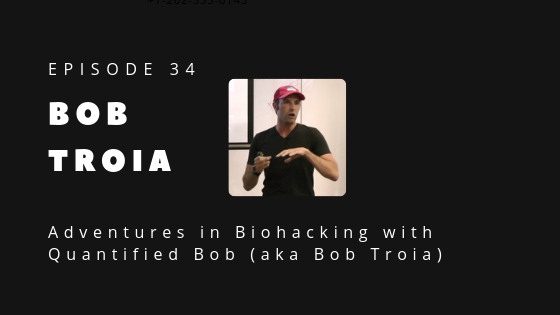
by Dave Korsunsky | Mar 29, 2019 | Podcast
Podcast: Play in new window | Download
Subscribe: Apple Podcasts | Spotify | Amazon Music | | More
Bob Troia, aka Quantified Bob, is the ultimate biohacker, tracking everything from weight, blood pressure – the usual things to glucose, hormones, HRV, effects of light therapy, and electric stimulation and more. On his blog, you’ll find his most popular post Mimicking the Fasting Mimicking Diet – My 5-day experiment which explains how he tricks his body into reproducing the effects of fasting while still eating! How does one go about figuring out how this works? By testing, tracking, and understanding how to become the ultimate biohacker.
Bob describes himself as entrepreneur, biohacker, and self-quantification geek focused on the intersection of data-driven citizen science, health and wellness, human performance, longevity, and personal optimization. He offers consulting as well as coaching which you can learn more about through his website. You can also follow him on Instagram, Twitter, Facebook, or Linkedin.
For those of you already tracking your health metrics through various devices, connect them easily to Heads Up Health to help you understand how to biohack your way to health in an increasingly unhealthy world.
Listen in iTunes!
This podcast is brought to you by Heads Up Health, a web app designed to help you centrally track all of your vital health data. Instantly synchronize your medical records, connect your favorite health devices and apps and use your data to optimize your health!
Click on the button below to start your free 30-day trial. Or, read on for more information about our latest podcast episode!
[maxbutton id=”5″ url=”https://headsuphealth.com/” ]
In this podcast you’ll learn:
- How Bob started by documenting on his site about 6 years ago what his own data was showing, and people began wanting to replicate his experiments (n=1) [4:55]
- About his epic fails. Bob does a lot of research before doing any of his experiences but has ended up in the hospital just based on a lack of knowledge so use caution when doing your own experiments and research [10:00]
- How he used light therapy- infrared ordered from China and shined lights (120 watts) on his head for 20 min (too long) and went to work. 30 minutes later and he blinked while reading an email and looked up to a completely garbled screen. Something was stimulated, up or down-regulated, but still not sure what exactly happened [11:03]
- Can have minor burns etc. from some experiments with biohacking fails. One lesson learned the hard way – too much MCT oil = running to the bathroom [13:00]
- He learned nootropics don’t work for him, but they can be highly effective for others. This is why tracking can be beneficial to figure out what works for you [13:45]
- About the PoV device and how it works to stimulate the muscles to override what your body is doing from an injury pattern [14:15]
- How photobiomodulation can be used for mitochondrial upcharge before a workout or as a recovery tool. There are lots of variation between devices and what the effects can be [15:45]
- How things that stimulate mitochondrial health are top of mind right now. There currently is no test that you can easily order to check these levels; however, there are some energy tests that you can use as a proxy to check the cellular energy of the body [17:45]
- How you can use biohacking tools to optimize energy production and health in a toxic world to thrive [19:00]
- Why it’s important to show up and meet the world where it is to elevate your health to the best possible [19:45]
- Top blog post on Quantified Bob’s website [20:25]
- Fasting Mimicking Diet which walks people through the diet, including nutrient guidelines, calculations, and diet plan, as well as the results of a 5-day experiment. He tracked glucose, blood pressure, sleep, HRV, and figured out which ones were worth tracking.
- Benefits – shifting sympathetic to parasympathetic
- Checked immune and growth markers
- Had a dramatic uptick in testosterone
- Saw elevated cortisol due to the stress on the body, but overall things were still better
- He had vivid dreams, running on ketones in therapeutic ketosis rather than nutritional ketosis
- How water fasting for 2-3 days produces a similar effect, but it’s not enough to get to the crazy dreams
- The top metric Quantified Bob thinks is vital for tracking-GLUCOSE! [29:40]
- Elite HRV CorSense’s ease of use and how it’s useful to track in addition to glucose [31:05]
- Continuous glucose monitors and how they can provide so much information, but the technology is still a ways off for non-invasive technology for the general public to utilize. They show what’s happening at night for example, that you can’t easily monitor when you’re sleeping. The pluses and minuses of what’s currently available on the market [32:43]
- Quantified Bob talks about some of the devices and companies he has created and launched into the world [38:00 ]
References
Our Partners:
Learn more about LEVL, a clinical-grade ketone breath meter, which measures your level of fat-burning and ketosis through a simple breath. Find out more at HeadsUpHealth.com/LEVL.
You can learn more about the Oura ring, a state of the art ring that can track sleep cycle analysis, activity, and recovery at HeadsUpHealth.com/Oura.
Learn more about Keto-Mojo, a highly accurate and affordable device for testing blood sugar and blood ketones. Check it out at HeadsUpHealth.com/Ketomojo.
All of these amazing products are integrated with Heads Up Health.
They all allow you to quantify your health in novel and powerful ways.
Thank you to our partners!
About Heads Up Health
Heads Up Health is a website designed to empower individuals who want to take a self-directed approach to managing their health. Instantly centralize your medical records, connect your favorite devices and apps (e.g., Oura, MyFitnessPal, Keto-Mojo, FitBit, Apple Health, MyMacros+, Withings and many more) and use your data to optimize your health.
Click on the button below to start your free 30-day trial now
[maxbutton id=”4″ url=”https://headsuphealth.com/” ]
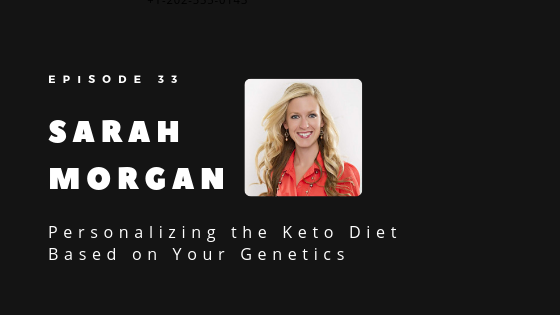
by Dave Korsunsky | Mar 12, 2019 | Podcast
Podcast: Play in new window | Download
Subscribe: Apple Podcasts |
Have you tried the keto diet and struggled with getting your ketones high enough? Did you feel terrible eating a lot of fats, or tired and sluggish? Did you suffer from hypoglycemia, while trying to fix your high blood sugar problems? Or just feel like your body needed more vegetables? These are all common issues that can be avoided by understanding nutrigenomics and how your body responds to different foods. Grab your Nutrition Genome (or another genetic SNP test) results and follow along as Sarah Morgan takes you through the top 11 SNPs you’ll want to know about for personalizing the keto diet based on your genes.
Pairing Nutrition Genome testing with functional lab bio-marker testing and tracking it all within Heads Up Health, can help you monitor your health and see how your diet is working for you or against you. It’s true, your genes don’t change, but don’t assume there’s nothing you can do to avoid disease. How you live your life and what you eat is directly responsible for switching your genes for a disease on or off.
Dave Korsunsky, Founder of Heads Up Health interviews Sarah Morgan, aka “The Gene Queen”, on the top 11 genetic SNP’s that affect how you may react to a ketogenic diet, and what to do if you do have those SNP’s.
This episode is packed full of useful information, especially for those of you who have not achieved the results you wanted with a ketogenic diet. It may just need a bit more personalization for you, which is where genome testing for nutrition comes in.
Make sure to check out our podcast with Alex Swanson of Nutrition Genome on how to obtain your own test kit and what information you’ll find within the results.
Sarah Morgan, aka “The Gene Queen” has worked in the field of genetics for the last 13 years, connecting the dots on how your genes interact with your diet and lifestyle. She has a Bachelor’s degree in Biology and Chemistry from the University of Wisconsin – Eau Claire. She holds a Master of Science in Functional Nutrition from the University of Bridgeport. Currently, she runs several companies after taking a step back from her clinical practice. Her new company Even Health (coming soon) creates supplements to help replenish the nutritional cost of the medications you may have to take, such as birth control pills, and even statins. She has also written a children’s book Buddies in My Belly to help kids understand the importance of a healthy gut microbiome.
Listen in iTunes!
This podcast is brought to you by Heads Up Health, a web app designed to help you centrally track all of your vital health data. Instantly synchronize your medical records, connect your favorite health devices and apps and use your data to optimize your health!
Click on the button below to start your free 30-day trial. Or, read on for more information about our latest podcast episode!
[maxbutton id=”5″ url=”https://headsuphealth.com/” ]
In this podcast you’ll learn:
- When the Human Genome Project was completed in 2003 we thought we’d find at least 50,000 genes but we found only 20,000-25,000 [2:40]
- That the microbiome has genes also and can impact our human genome expression [3:10]
- SNP’s (single nucleotide polymorphisms) sometimes don’t do anything, but other times they affect things like detox, how we handle inflammation and what types of diets we tolerate best. These are not inborn errors that children are sometimes born with [4:30]
- Your genes and genome are always going to be the same, but your genetic expression is changing all the time based on the inputs you give your body – diet, stress, water, sleep etc. [6:25]
- How tracking your data through HUH you can figure out what inputs (diet, stress, sleep) are connected to health for you [8:20]
- #1 – PEMT gene (located in the methylation section) allows you to make choline which is crucial for liver function. The liver converts your fats to ketones, so this is important for a ketogenic diet [12:40]
- Normal- usual presentation, heterozygous – one copy of the gene, homozygous – two copies of the gene [14:50]
- Choline is really important for gallbladder function which helps break down fats for our body to use them [15:20 ]
- # 2 – FADS-2 (located in the digestion section) [20:35]
- Has to do with metabolic or neurologic issues on a keto diet. These are omega 3 status indicators.
- This gene has to do with taking shorter chain omega 3 fatty acids (alpha-linolenic acid) like flaxseed and walnuts and converting it to the longer chain fatty acids like EPA and DHA which are found in higher amounts in fish.
- You can check your blood levels of EPA and DHA levels and cross-reference how these genes are working for you in your body [23:15]
- # 3 – FUT2 (located in the digestion section) How well you feed your microbiome [23:35]
- The microbiome plays a part in how well you absorb your fats based on the type of bacteria living in your small intestines.
- The more dysbiosis (bad bugs) bacteria you have living in your gut, you can have more of an inflammatory response to an increase in fats.
- If you have heterozygous or homozygous, you should emphasize your prebiotics (food for gut bugs) because if you have changes in this gene you’re not actually feeding your microbiome as well and can have more issues with lower levels of bifidobacteria (anti-inflammatory bacteria that also makes B vitamins like B12 and folate).
- Needs a good variety of diverse plant fibers in the diet. 25 different plant species per week (this can be hard in a traditional keto diet -carnivore would not be a good option for someone with this gene).
- CAUTION- very extreme restricted diets can be detrimental so use caution if you don’t have all of the information on how it will affect you before beginning a very restricted diet if you don’t know what you’re doing. Test, don’t guess.
- #4 – ACAT (located in the digestion section) How your body converts protein and fat to cellular energy [30:04]
- We make our body weight in ATP (cellular energy) every day! We want to make sure someone has the ability to get good energy from protein and fat and has to do with cholesterol balance in the cell if eating a high fat/protein diet.
- Example of symptoms:
- Someone who is homozygous may go on a higher fat diet and consume more protein and have their cholesterol go up.
- Eating more fat and you feel exhausted. You never feel good, because it’s lowering your ability to make energy due to your lack of ability to properly use fat and protein for fuel
- Watch your cholesterol and liver enzymes when doing a high-fat diet as they can go up if your liver can’t handle all the fat processing (see PEMT gene info).
- #5 -ADIPOQ The Red Meat Gene – Adiponectin (located in the digestion section) [33:50]
- This is a hormone released in the intestinal tract when we eat foods and it has to do with how much insulin is secreted- affecting blood sugar, type 2 diabetes, etc. These are people that are predisposed to metabolic disease.
- Things that help this function better
- Exercise
- Intermittent Fasting
- Omega 3’s to increase adiponectin secretion
- Turmeric
- Berries
- Ginger
- People that are low secreters are at a higher risk for insulin resistance, heart disease, and colon cancer – especially important to know before doing a high meat keto diet with a lot of red meats
- Homozygous- make sure you exercise and check body composition. Insulin resistance starts in the muscle -so get your muscles moving and lift some heavy stuff!
- #6 – SLC22A5 Fat Taxi Cab Gene – (located in the digestion section) [40:20]
- Picks up our fats and shuttles them to mitochondria to be burned as an energy source. Fat goes through the digestive tract and is absorbed across the gut barrier and then L-carnitine shuttles to the mitochondria.
- Low levels of L-carnitine could compromise your ability to shuttle fat to your mitochondria and contribute to lowered energy in your mitochondria which can have neurological implications.
- You can consume L-carnitine in red meat, but your body also makes it.
- Vitamin C is very helpful and making sure you’re methylating well as L-carnitine is a byproduct of methylation.
- #7 PPAR Alpha – Peroxisome Proliferator-Activated Receptor Alpha (located in the digestion section) [42:20]
- This is the “ketone gene” – especially if homozygous this can make it difficult to get into ketosis.
- This plays a role in fatty acid metabolism – how our fats are actually utilized in ketosis.
- Symptoms:
- Changes in cholesterol panel like triglycerides, HDL, LDL in people that are poor responders.
- May not feel as well when trying to go into ketosis and feel poorly on a keto diet.
- They could potentially have ketogenic hypoglycemia because their ketone production is low and they’re not bringing in enough carbs to keep blood sugar normal – they essentially have no fuel to run on.
- Needs exogenous ketones to stay keto since your body can’t make them well.
- If you’re homozygous and taking exogenous ketones, you need to really watch your cholesterol well.
- #8 – ACSL1– How well you metabolize saturated fats from animals – bacon, fat bombs from dairy, etc. (located in the digestion section) [44:25]
- These people will have higher issues with higher fasting glucose and insulin resistance. If homozygous or even heterozygous -focus from getting your fats from plant sources rather than animal sources. More Mediterranean keto diet. Coconut is okay.
- #9 – APOA2– Eat fat, get fat gene (located in the digestion section) [44:25]
- An enzyme that regulates appetite. People who eat more fat tend to be more hungry and tend to consume more calories in a day. You can mitigate this through movement. Don’t have a desk job where you sit 8 hours a day, especially if you eat a lot of fat.
- #10 FTO – The Hangry Gene (newly added to report in last 6 months or so -located in the digestion section) [47:00]
- Has to do with the hunger hormone ghrelin.
- People who have this, especially homozygous, are the people that are just hungry all the time.
- Balance blood sugars. Don’t consume high glycemic foods (you’re already doing that if on keto).
- Pay attention to hunger signals as well even if not eating high glycemic foods regularly.
- # 11 TCF7L2 – The carb Gene (located in the digestion section) [49:40]
- Incretin hormone that has to do with insulin sensitivity.
- The biggest indicator of type 2 diabetes, across the board in terms of studies.
- If heterozygous – be careful with your carbs, homozygous be REALLY careful with your carbs.
- Symptoms:
- weight gain
- dysregulated insulin
- carb cravings
- Wild type can have more metabolic flexibility of being able to use carbohydrates and not have negative consequences. Beta cells in pancreas very sensitive for these people. Ancestrally they probably ate more carbs and are more efficient at it.
References
EVEN Health Supplement Company
Buddies In My Belly
Gene Queen
Nutrition Genome
Our Partners:
Learn more about LEVL, a clinical-grade ketone breath meter, which measures your level of fat-burning and ketosis through a simple breath. Find out more at HeadsUpHealth.com/LEVL.
You can learn more about the Oura ring, a state of the art ring that can track sleep cycle analysis, activity, and recovery at HeadsUpHealth.com/Oura.
Learn more about Keto-Mojo, a highly accurate and affordable device for testing blood sugar and blood ketones. Check it out at HeadsUpHealth.com/Ketomojo.
All of these amazing products are integrated with Heads Up Health.
They all allow you to quantify your health in novel and powerful ways.
Thank you to our partners!
About Heads Up Health
Heads Up Health is a website designed to empower individuals who want to take a self-directed approach to managing their health. Instantly centralize your medical records, connect your favorite devices and apps (e.g., Oura, MyFitnessPal, Keto-Mojo, FitBit, Apple Health, MyMacros+, Withings and many more) and use your data to optimize your health.
Click on the button below to start your free 30-day trial now!
[maxbutton id=”4″ url=”https://headsuphealth.com/” ]
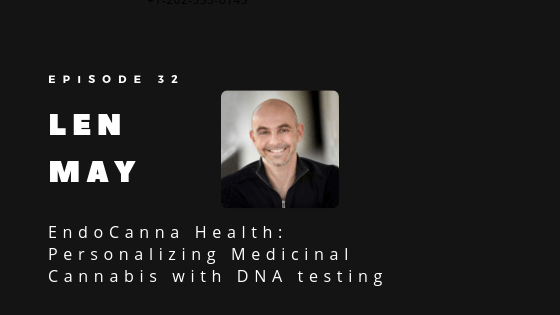
by Dave Korsunsky | Feb 20, 2019 | Podcast
Podcast: Play in new window | Download
Subscribe: Apple Podcasts |
Have you ever tried medicinal cannabis for your anxiety, pain, achy joints or other condition, experienced cannabis side effects and written it off as a natural medicine that won’t work for you? Were you aware that cannabis works on the endocannabinoid system within the body, and with some personalization, through genome testing, you can have help finding cannabis that works for you? EndoCanna Health uses your genes to determine ways in which your system interacts with cannabis.
Personalized genomics in the context of medicinal cannabis can help you to understand which cannabis is right for you. We know that certain strains or terpenes are better for particular ailments, however, if you’re a slow metabolizer, or if you have a predisposition to anxiety, for example, you may have a different experience than your friend or even family member using the same amount/strain of medicinal cannabis.
Listen to Dave Korsunsky of Heads Up Health interview Len May, Co-Founder of EndoCanna Health about genetic testing for cannabis. Learn more about the endocannabinoid system and how your genetics can help you to find the right cannabis for you, to help with things like anxiety, mood, sleep, pain, and more. EndoCanna takes its privacy very seriously, so if you’re not happy running a 23 and Me for genetic information, you can order a kit directly from EndoCanna Health who can run your results on their own secure system(no sharing of genetic data and they are HIPAA compliant).
Click here to learn more about testing with EndoCanna Health.
Listen in iTunes!
This podcast is brought to you by Heads Up Health, a web app designed to help you centrally track all of your vital health data. Instantly synchronize your medical records, connect your favorite health devices and apps and use your data to optimize your health!
Click on the button below to start your free 30-day trial. Or, read on for more information about our latest podcast episode!
[maxbutton id=”5″ url=”https://headsuphealth.com/” ]
In this podcast you’ll learn:
- About Len May’s history of involvement in the medical cannabis regulations and acceptance as a medical treatment since the early 1990s [4:10]
- About Elvy Musikka who is legally blind due to glaucoma – a participant in the NIDA program that allowed the federal government to cultivate cannabis in the University of Mississippi and send to a location to roll into cigarettes that even comes in a tin with a USDA label. She could light up in front of Federal rangers…in the 1990s! [4:25]
- Len started in California in a dispensary where patients were using medical cannabis for various reasons and his experience was that while they recommended certain strains for certain conditions, he began to see that within those ailments people would have wildly different experiences of the same strain/profile [7:20]
- Your DNA dictates your personal experience. Len and his team spent 2 years to evaluate every gene that has a direct or indirect connection with the endocannabinoid system, knowing that it’s an ongoing thing due to emerging science – they continue to study genetic info as it comes out in relation to how it affects the endocannabinoid system [8:55]
- EndoCanna Health has developed a direct to consumer kit ($199) similar to a 23 and Me, with a simple mouth swab that they genetically sequence that to find out which cannabis would work best for you and help regulate the entire endocannabinoid system. You can also bring your own raw data over to run through their system for $49 [10:00]
- Genetic conditions that are affected by a gene expression help them learn what the optimal ratio of cannabinoids and terpenes for their particular genetic expression of symptoms [12:20]
- The 8 genetic expression symptoms that are affected by which are:
- Anxiety
- Pain
- Metabolism
- Psychosis
- Sleep
- Cognition
- Dependence
- Depression
- While they can use 23 and Me or other data that you have already their interpretation is only as good as the array that the original test included. (23 and Me provided more genetic data prior to August 2017, so older tests may offer more info) The more genes tested will give a better interpretation to give better suggestions based on your genes. They do not make recommendations but instead provide suggestions of what may be beneficial to you [13:50]
- That the endocannabinoid system is a regulatory system that supports digestion, immune, hormones, and more. We are all born with this system and the ability to produce our own endogenous endocannabinoids within our bodies, and it regulates based on our body needs. Lifestyle, stress, lack of sleep, poor nutrition can create deficiencies in our own endocannabinoid system and our immune system responds because we don’t have enough of our own endocannabinoids to support everything it needs to, which is how cannabis can support the endocannabinoid system [15:10]
- There are receptor cites built into our bodies which turn on in response to the cannabis plant. CB1 effects the central nervous system and THC. CB2 is activated by enzymes through CBD and has a lot to do with immune and digestive systems [16:55]
- Info about how to look for a cannabis medicine from a dispensary- from state to state it can be different in what information they publish on terpenes. EndoCanna Health gives you the profile that you’ll want to look for, and then you’ll need to locate the product within your state. You can also take the profile to your local dispensary and ask them to help you find what you’re looking for [17:55]
- About why some people have a great experience, while others taking the same amount and strain of cannabis can have completely different experiences [21:20]
- Have you ever tried medicinal cannabis and gotten anxiety? If you have a predisposition of anxiety due to your genes (FAAH), then you are more likely to experience anxiety in a threatening situation. Because anandamide is lower and cortisol higher, giving that fight or flight feeling, THC exacerbates that. There are terpene profiles like limonene that are dominant in Savita hybrids that can trigger that gene to express itself. If you know this ahead of time, lower your THC, increase your CBD and modify your terpene profile to decrease chances of having an issue with anxiety, for example, include linalool instead of limonene for a more calming effect [22:16]
- People call up or go to the ER, and think they’re dying, but you cannot have a toxic overdose of cannabis. What often happens with edibles that rely on the liver to convert the THC is that it actually becomes more potent, and due to the delayed impact, people often eat more and then end up with way more than they need. They could use less or take it sublingually and have a much better experience [25:15]
- Len talks about how individuals can empower themselves with these reports and take them to their doctors to support them with this wealth of info. He mentions that if you have a doctor who doesn’t support the use of cannabis for treatment, there are other doctors out there with this cutting edge information that will [28:30]
- EndoCanna Health takes its security and how they handle it very seriously. Their DNA is in one server and the reports are in another server, and an encoded keycode associated with each. They are HIPAA compliant so they can’t show a sample report due to their high level of security [29:30]
- Using Heads Up Health with a service like EndoCanna Health reports can help you track to see whether your inflammation is coming down or other markers you may be interested in following [31:00]
- EndoCanna Health is in a partnership with a company in Australia called WARD Management and is in 6 clinical trials to track data markers that show the effectiveness of your treatment with cannabis [31:40]
- About drug to drug interaction with cannabis, and how things like CBD can be an uptake inhibitor which can reduce the effectiveness of your prescription depression medications. It’s important to know how one affects the other [32:50]
- How using their service is like GPS in guiding you to know where you want to go and how you’re going to get there using cannabis [34:00]
- Dave mentions research that’s coming out on how cannabis can be used with opioid addiction because it can bind to some of those opioid receptors and help you titrate off of medications. Make sure you understand interactions if you’re on meds [35:20]
- Opioids bind to those CB1 receptors for pain as an analgesic and their test can tell you if you have a predisposed dependence to opioids and if you’re likely to have more unfavorable results to opioids than most people SUPER USEFUL to know beforehand [35:45]
- How understanding how your genes work with opioids and cannabis can affect how you live your life and even potentially prevent you from traveling down a road you never want to go down with addiction as well [38:00]
References
About Heads Up Health
Heads Up Health is a website designed to empower individuals who want to take a self-directed approach to managing their health. Instantly centralize your medical records, connect your favorite devices and apps (e.g., Oura, MyFitnessPal, Keto-Mojo, FitBit, Apple Health, MyMacros+, Withings and many more) and use your data to optimize your health.
Click on the button below to start your free 30-day trial now!
[maxbutton id=”4″ url=”https://headsuphealth.com/” ]
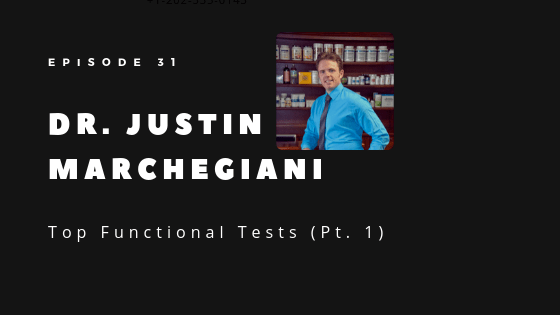
by Dave Korsunsky | Feb 8, 2019 | Podcast
Podcast: Play in new window | Download
Subscribe: Apple Podcasts | Spotify | Amazon Music | | More
Dr. Justin Marchegiani is a licensed Chiropractor in the state of Texas, with postgraduate studies in the area of clinical nutrition, rehabilitative exercise, and functional medicine. With a holistic approach, Dr. Justin Marchegiani offers testing options such as the urine heavy metals test to help his patients improve their health, and prevent future issues by taking a proactive approach.
This is the first in a series of interviews with Dave Korsunsky, founder of Heads Up Health, where they’ll dive into the specific lab testing used in functional medicine: ex. the testing of heavy metals, organic acids and/or IgG antibodies.
In this episode, Dr. Justin Marchegiani reviews Dave’s heavy metals test (watch the forthcoming YouTube video) and talks about the dangers of mercury in our environment and how it can have detrimental effects when it builds up in our bodies. Though each person will need a customized approach to safely remove the heavy metals from the body, which can take some time, it is well worth the investment in your healthy future.
Listen in iTunes!
This podcast is brought to you by Heads Up Health, a web app designed to help you centrally track all of your vital health data. Instantly synchronize your medical records, connect your favorite health devices and apps and use your data to optimize your health!
Click on the button below to start your free 30-day trial. Or, read on for more information about our latest podcast episode!
[maxbutton id=”5″ url=”https://headsuphealth.com/” ]
In this podcast you’ll learn:
- Dr. Justin Marchegiani’s introduction of why and how he uses functional tests to evaluate symptoms, systems and underlying stressors [1:50]
- How Dr. Marchegiani helped inspire Dave to develop the Heads Up Health app [4:30]
- About some of the tests that are very useful but not offered as standard labs by most doctors [6:00]
- About the Doctors Data test for heavy metals, which is used to tell the tissue burden of heavy metals.This test uses DMPS to pull metals into the urine for testing, showing a better representation of what is stored in the body’s tissues, rather than a blood metals test that shows only for acute exposure to metals. The reason for running this for Dave was lowered WBC and lowered platelet counts, which could mean either an underlying viral infection or mercury being burdensome on the immune system [6:40]
- Hear what Dr. Marchegiani recommended for Dave to address the things that came up on his Doctors Data heavy metals test [8:15]
- How people get exposed to heavy metals, like bomb-making for example…or, more realistically dental amalgam fillings, thermometers, barometers, batteries, some Ayurvedic herbs (the cheap ones), fluoride, pesticides, fungicides, old coal burning methods that have gotten into fish, flu vaccines that are high in Thimerosal [8:56]
- That Dr. Marchegiani doesn’t recommend heavy metal testing until the gut has really been cleaned up and supported because a large part of detox happens in the hepatobiliary system (liver-gallbladder), and GI tract. You don’t want to re-toxify yourself [11:05]
- Why binders are important with heavy metal detox [11:45]
- Why Dr. Marchegiani recommends doing the heavy metal testing for monitoring annually, especially if you’re on municipal water supply, and why you shouldn’t trust the water supply [11:55]
- Top three things to help prevent heavy metal issues
- #1 – “The solution to pollution is dilution!” [12:45]
- #2 – Good access to an infrared sauna [13:06]
- #3 – Really good access to, and digestion of, sulfur amino acids — animal proteins are the richest source, whey protein, organic green vegetables
- Don’t expose yourself to the heavier sprayed pesticide-laden crops, and avoid mercury fillings and Thimerosal in the flu vaccine [13:25]
- That having low glutathione levels makes it harder to excrete mercury, which can be tested for in an RBC glutathione test or an organic acids test, and can also inactivate lymphocytes or be immunosuppressive (Dave’s low WBC could be from this) [14:05]
- How proactive Dr. Marchegiani is in running tests that might be helpful in uncovering potential issues [15:15]
- That we want to look at the levels of mercury in the test, but also we have to look for the exposure or source of where it came from. We don’t always find an answer, but it could be from inorganic foods, for example [16:15]
- Tips to reduce accumulation of mercury: [16:20]
- Sweat a lot
- Drink plenty of filtered, healthy, mineral-rich water
- Eat organic foods
- Consider lead-based paints as a factor in homes built before 1976 [16:55]
- What symptoms people might see or diseases that might occur over years of exposure or burden in the body that haven’t actively been trying to reduce it [17:10]
- An increased stimulator in autoimmune conditions
- Neurological issues
- Lack of physical endurance (mitochondrial suppressor)
- Activation of the sympathetic nervous system – overtaxing the adrenals
- Thyroid issues and other system dysfunction
- The lethal dose of one for mercury, or the lethal dose of one for lead is the amount of that metal that is required to kill the first rat out of 100 fed the metal. If you combine the lethal dose for one of mercury with the lethal dose of one for lead, ZERO rats will survive. Metals have synergistic effects making them even more toxic when combined [18:30]
- How to get this heavy metal test, which is around $150 with the DMPS, which Dr. Marchegiani recommends annually. If you know you’re exposed to these metals, then test more frequently or if you have a high level on your first test you’d want to test more frequently to monitor the progress of the protocol. You can order a test at www.justinhealth.com [19:45]
- You can schedule a consult via Dr. Justin Marchegiani on his website from anywhere in the world. Or ask your own doctor about the functional tests [20:40]
- IgG antibodies, and organic acids functional tests coming soon on the Heads Up Health podcast with Dr. Justin Marchegiani and Dave [21:00]
References
Topo Chico water
Heavy Metal test with DMPS
Dr. Justin Marchegiani
Our Partners:
Learn more about LEVL, a clinical-grade ketone breath meter, which measures your level of fat-burning and ketosis through a simple breath. Find out more at HeadsUpHealth.com/LEVL.
You can learn more about the Oura ring, a state of the art ring that can track sleep cycle analysis, activity, and recovery at HeadsUpHealth.com/Oura.
Learn more about Keto-Mojo, a highly accurate and affordable device for testing blood sugar and blood ketones. Check it out at HeadsUpHealth.com/Ketomojo.
All of these amazing products are integrated with Heads Up Health.
They all allow you to quantify your health in novel and powerful ways.
Thank you to our partners!
About Heads Up Health
Heads Up Health is a website designed to empower individuals who want to take a self-directed approach to managing their health. Instantly centralize your medical records, connect your favorite devices and apps (e.g., Oura, MyFitnessPal, Keto-Mojo, FitBit, Apple Health, MyMacros+, Withings and many more) and use your data to optimize your health.
Click on the button below to start your free 30-day trial now!
[maxbutton id=”4″ url=”https://headsuphealth.com/” ]

by Dave Korsunsky | Jan 25, 2019 | Podcast
Podcast: Play in new window | Download
Subscribe: Apple Podcasts | Spotify | Amazon Music | | More
Tired of your everyday keto recipes? Kelly Tan Peterson is lighting the low carb keto world on fire with her new book KETO EAST, co-written with her husband Dr. Dan Peterson. Kelly shares low carb keto Asian recipes that “turn Asian classics into ketogenic favorites,” as Maria Emmerich noted in the blurb of Kelly’s cookbook. Give your taste buds a kick in the pants with all the flavor that Kelly brings to the table with low carb keto Asian food recipes that are not just delicious, but healthy too!
Originally from Singapore, Kelly Tan Peterson moved to the United States after meeting her husband Dr. Dan Peterson. She began eating a keto diet after seeing how he ate. She watched her own metabolic and weight issues resolve, quickly rebalancing her body and maintaining it while eating keto. What she missed, though, was her traditional diet from back home.
Deciding that she did not have to choose one type of food over the other, she found a way to bring her Asian culture into the keto world. This was a challenge she wanted to take on, not only to be able to eat her favorite meals, but also to bring the benefits of ketogenic eating to her friends and family back in Singapore. This began her journey into low-carb advocacy in the spirit of love to inspire those metabolically damaged in Asia to improve their health eating familiar food they loved.
What began as a blog and recipe sharing has become a series of books – KETO EAST (already published) and two more to follow: KETO BAKED and KETO WEST. Keep your eye out for Kelly Tan Peterson — she’s spreading low carb keto awareness and delicious recipes — to Asia and beyond!
Listen in iTunes!
This podcast is brought to you by Heads Up Health, a web app designed to help you centrally track all of your vital health data. Instantly synchronize your medical records, connect your favorite health devices and apps and use your data to optimize your health!
Click on the button below to start your free 30-day trial. Or, read on for more information about our latest podcast episode!
[maxbutton id=”5″ url=”https://headsuphealth.com/” ]
In this podcast you’ll learn:
- How Kelly Tan Peterson struggled with cholesterol, acidic stomach, and blood glucose before meeting her husband [3:15]
- Why Kelly wondered how her husband, a doctor, could be eating such a high fat and low carb diet, let alone recommending it to his patients [3:30]
- As she began eating a LCHF diet along with her husband, she realized that just by changing the way she eats, her symptoms improved. Now she has no weight issues at all as long as she avoids starch and sugar [4:05]
- Why certain foods in her culture were problematic for her and how awareness is slowly growing in Singapore [5:15]
- How she used social media to post what she ate and her new lifestyle, drawing curiosity from her friends [6:45]
- Why it’s easy to eat out in Singapore, even if you’re eating low carb keto Asian food, simply by making swaps for carbs/starches [7:45]
- How food in the Asian culture, like roast duck, crispy pork belly, roast chicken and plenty of vegetables, can fit within a low carb keto diet, just watch for hidden carbs like a glaze on meat [9:30]
- Why it’s not hard to eat anywhere in the world and find something that would qualify as low carb/high fat [11:00]
- How after spending the last six weeks traveling throughout Asia she realized that there was much less obesity when she was a child. Now, on yearly visits to Singapore, her observation is that even children are getting bigger, requiring larger uniforms [11:30]
- How food in Singapore is getting sweeter now, seeing with each visit, more fast food and western food chains in Asian countries [13:10]
- Why eating all of the typical popular foods can hijack your brain, perpetuating the problem of cravings, leading to food addictions [14:20]
- Kelly realizes now that the longer she is off of carbs and sweets, she tastes so much more flavor in natural foods, while friends who eat a Standard American Diet cannot taste [16:00]
- Why even after 9 years of eating keto, if hidden carbs are eaten, she’ll notice cravings for snacks and other foods due to the brain changes that occur [16:45]
- About Kelly’s approach to keto Asian recipes and her cookbooks which are written in both English and Mandarin [18:20]
- Kelly talks about how she’s adapted the low carb keto diet to her ethnic diet of noodles and rice dishes with shirataki noodles or cauliflower rice but using the same traditional methods of cooking those dishes to retain their flavor and depth [19:30]
- Kelly gives an example of how she adapts Young Chow fried rice to keto while keeping the flavor people don’t want to lose [22:20]
- Her book contains her personal story of her cultural background and how she was able to bring that into keto and adapt it, rather than give up all the foods she loves [24:30]
- How she tests all the recipes with her blood glucose to make sure it doesn’t spike [25:30]
- Why Kelly still occasionally tests her ketones and glucose. She tested more frequently when she first began the keto diet. Now she does it so she could relate how she feels to what her glucose levels are (e.g., water retention in her ankles) [26:15]
- How KETO BAKED will be her next book to release, which was born from watching her mom go through cancer while navigating a culture that is rich in higher carbs and how socializing always involves sharing foods [28:10]
- How Kelly hopes that if she can interest people with a keto baking book, they can cut their carbs in half while still eating tasty food/treats, making the transition easier later if they want to do keto [30:15]
- How her third book will be called KETO WEST: bringing in American and French meals with a touch of Asian flavor [32:00]
- About the response she’s getting in Asia by sharing her story of how she feeds herself and her family [33:40]
References
KETO EAST Cookbook by Kelly Tan Peterson
Kelly Tan Peterson website: Cooking Inspired By Love
Kelly Tan Peterson YouTube Channel
Keto East West Facebook group
Keto BAKED Facebook group
Keto MARKET Facebook group
Our Partners:
Learn more about LEVL, a clinical-grade ketone breath meter, which measures your level of fat-burning and ketosis through a simple breath. Find out more at HeadsUpHealth.com/LEVL.
You can learn more about the Oura ring, a state of the art ring that can track sleep cycle analysis, activity, and recovery at HeadsUpHealth.com/Oura.
Learn more about Keto-Mojo, a highly accurate and affordable device for testing blood sugar and blood ketones. Check it out at HeadsUpHealth.com/Ketomojo.
All of these amazing products are integrated with Heads Up Health.
They all allow you to quantify your health in novel and powerful ways.
Thank you to our partners!
About Heads Up Health
Heads Up Health is a website designed to empower individuals who want to take a self-directed approach to managing their health. Instantly centralize your medical records, connect your favorite devices and apps (e.g., Oura, MyFitnessPal, Keto-Mojo, FitBit, Apple Health, MyMacros+, Withings and many more) and use your data to optimize your health.
Click on the button below to start your free 30-day trial now!
[maxbutton id=”4″ url=”https://headsuphealth.com/” ]



